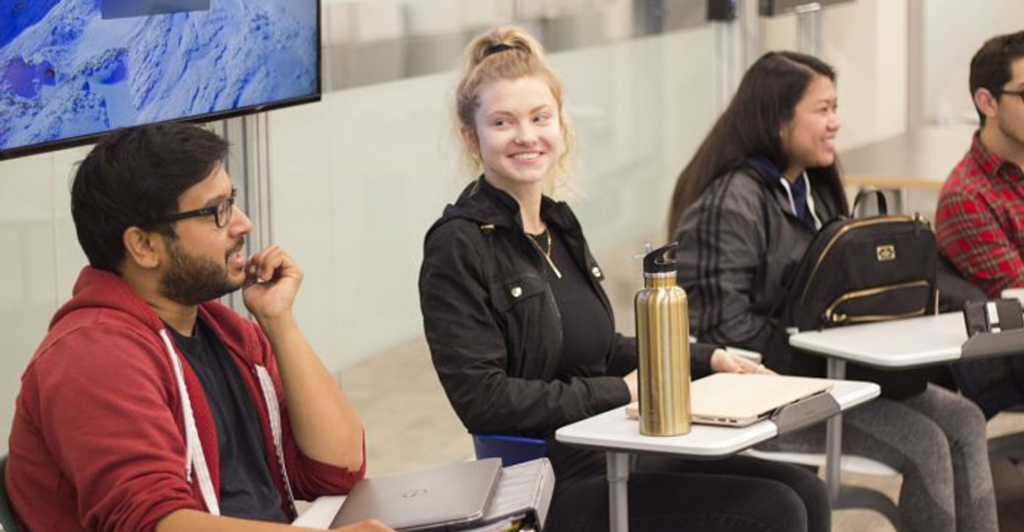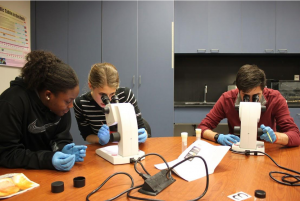Guest post by Cassidy Villeneuve, Wiki Education.
A Wikipedia writing assignment is a great opportunity for instructors to teach science communication skills on a world stage. In this kind of assignment, genetics students create or improve Wikipedia articles related to course topics. They’re especially well equipped to translate scientific concepts this way for a general audience, because they remember what it was like learning these concepts for the first time. And they feel an increased sense of motivation to produce quality work, considering that millions of readers can access it. Students also gain familiarity with the backend of a website they use all the time, preparing them to consume information online with a more critical lens in the future.
If you’re teaching an upcoming course, consider utilizing an assignment like this. Wiki Education has free assignment templates, student trainings, and staff support to help you be successful. Here are just a few success stories from genetics and other biology courses that have done this in the past!
Students dive deep into a niche topic by improving a “stub” article
Many biology and genetics-related courses that incorporate Wikipedia writing assignments focus on Wikipedia’s “stub” articles, which are only a few sentences long. They’re a great starting place for students who don’t necessarily have the expertise to edit high-value, frequently visited pages.
That’s exactly what Laura Reed’s students did at the University of Alabama last fall. Among the 21 Wikipedia articles that her 17 students expanded, the one about odorant-binding proteins stands out. The student added 39 new references to it!
Students edit high-value Wikipedia articles about fundamental biology topics
A student in Eric Guisbert’s developmental and molecular biology course at the Florida Institute of Technology contributed content to Wikipedia’s cell division article last spring. The page receives about 1,000 pageviews every day. It was a great chance for a single student to make a big impact by putting well-researched information related to course topics into the hands of so many people at once.
In addition to trainings that prepare students to make meaningful content edits, Wiki Education’s Dashboard has an Authorship Highlighting feature. Instructors can see exactly what each student contributed to their assigned article. See Guisbert’s student’s contributions to the cell division article, for example. While the student only added about 1,500 words, the process of contributing to Wikipedia required them to:
- understand how to evaluate their article for missing content,
- find sources that meet Wikipedia’s standards, and
- incorporate their research into the article’s existing content in a succinct way.
Wiki Education trainings provide guidance for the Wikipedia side of things, while instructors provide content expertise. By the end of this rigorous process, students can really feel like an expert!
Students create brand new articles
Some instructors who conduct this assignment have students create new articles for topics previously unrepresented on Wikipedia. Quite a few students did so in Nigel Atkinson’s epigenetics course at the University of Texas at Austin in Spring 2018. The Wikipedia article about the epigenetics of anxiety and stress-related disorders is brand new. You can already see through Authorship Highlighting on the Dashboard that Wikipedia volunteers have added some content to the article since the student created it. Collaborating to expand information about topics is what Wikipedia is all about!
Want to get involved?
There are a few ways you can get involved in improving science content on Wikipedia!
- Use Wiki Education’s free assignment templates to have your students write Wikipedia articles related to genetics: teach.wikiedu.org.
- Learn how to edit Wikipedia yourself and expand your educational reach to the public: learn.wikiedu.org.
- Explore how you and your students can contribute data about genetics to Wikidata, the global open data repository that informs AI like Siri: data.wikiedu.org.
About the author:
Cassidy Villeneuve is Wiki Education’s Outreach and Communications Associate




